알림
LTSS Newsletter—October 2024
- [등록자]Centers for Medicare & Medicaid Services (CMS)
- [언어]日本語
- [지역]Baltimore, MD
- 등록일 : 2024/10/21
- 게재일 : 2024/10/21
- 변경일 : 2024/10/21
- 총열람수 : 54 명
- 가게를 검색하고 싶을 땐 <타운가이드>
-
- 인기 스타일리스트 Summer가 당신의 매력을 끌어냅니다 ! 첫회 한정 ...

-
인기 스타일리스트 Summer가 당신의 새로운 매력을 이끌어냅니다 ! 첫 방문 시 20% 할인 혜택 ! 여성과 남성 모두를 위한 다양한 헤어 메뉴가 준비되어 있습니다. 헤어 커트, 펌, 염색, 발레아쥬, 디지털 펌, 케라틴 트리트먼트, 스트레이트 펌, 딥 트리트먼트 등 당신의 머리카락을 최고의 빛으로 만들어 드립니다. 비비나비를 방문하신 고객님들께는 특별한...
+1 (408) 627-2457Summer Hair Salon
-
- $ 47, 매월 17명 한정 ! 상담, 검진, Dr.'s report (...
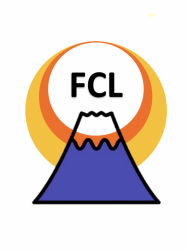
-
스무 살 때 일본에서 카이로프랙틱을 배우고 졸업 후 카이로프랙틱 사무실, 침술, 정골원 등에서 일했다. 더 많은 지식과 기술을 연마하기 위해 미국으로 건너가 Doctor of Chiropractic을 취득. 통증의 근본 원인을 찾아 통증 없는 삶을 살 수 있도록 돕고 있습니다.
+1 (424) 235-6005藤井カイロプラクティック研究所
-
- 일본으로의 택배, 항공 수출입, 해상 수출입, 창고 물류 사업, 이사 취...
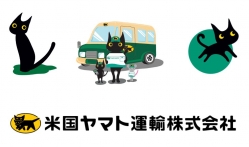
-
일본으로의 택배, 항공 수출입, 해상 수출입, 창고 물류 사업, 이사를 취급하고 있습니다. 멕시코와의 크로스보더 비즈니스. 짐, 물류에 관한 것은 무엇이든 상담해 주세요 ! (
안심 일본어 대응 ) +1 (713) 984-8930米国 ヤマト運輸 ヒューストン支店
-
- 매일 아침 매장에서 직접 만드는 수제면. 한길만 걸어온 30년의 장인정신...

-
30년 경력의 일본인 오너의 일본식 환대와 정성을 찾는 현지 고객들이 많이 찾는 편안한 분위기의 가게입니다. 대부분의 일본인이 좋아하는 쫄깃쫄깃한 츄카소바를 먼저 맛보시기 바랍니다. 직접 만든 점보 만두도 추천 ‼︎ 도쿄 도내에 4곳의 매장을 두고 1994년부터 이어져 온 원조 도쿄 돈코츠 라멘 가게의 해외 1호점. 일본인 오너의 일본식 환대와 정...
+1 (310) 448-8886VENICE RAMEN
-
- 따뜻한 사람들과 함께 옛 민가를 풍요로운 땅에서 흙과 채소 등 자연을 만...
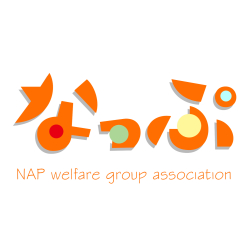
-
낮잠을 잘 때 '따뜻함'을 느끼지 않나요 ? 나뭇잎소매포사업소에서는 마치 낮잠을 자는 것 같은 따뜻함을 느낄 수 있는 사람과 사람과의 만남을 소중히 여기고 있습니다. 옛 민가를 리노베이션한 사무실에서 흙과 채소를 접하면서 차분하게 일할 수 있습니다. 견학 및 체험을 실시하고 있으니 꼭 한번 방문해 주시기 바랍니다.
就労支援B型 なっぷ袖ケ浦事業所
-
- 학습지 커밋은 글로벌 협력 체제로 미래의 꿈을 향해 나아가는 아이들을 응...
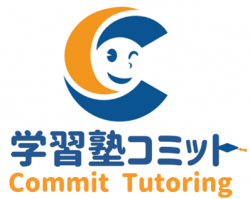
-
수시 무료 체험입학을 실시하고 있습니다. 자세한 사항은 가까운 학원으로 문의해 주시기 바랍니다. ■ 학습지 커밋의 큰 특징 소수정예 수업 메이크업 ・ 업 제도 미국 태생의 아이 ・ 해외에 오래 있는 아이의 강점 ・ 약점을 잘 알고 있다 질문이 없어도 학생의 '모르는 것'을 알 수 있다 특별 수업이 충실하다 즐거운 이벤트가 가득!
+1 (310) 540-1605学習塾コミット / Commit Tutoring
-
- 뉴욕 ・ 도쿄에 사무소를 두고 있는 회계법인입니다. 고객의 모든 니즈에 ...

-
글로벌 네트워크를 활용하여 고객의
UNIVIS AMERICA, LLC・ 법인세 신고서 작성 ・ 개인 확정신고서 작성
-
- 보소의 기념품으로 인기 있는 '도미 센베이'를 중심으로 사계절의 화과자를...

-
도미 센베이를 비롯해 사계절의 일본 과자를 제조하고 있습니다. 와쇼쿠 가타에서 출시하는 화과자는 모두 수작업으로 만들어집니다. 다이쇼(大正)시대부터 이어져 내려온 전통 기법을 지키며 손에서 손으로, 사람과 사람으로, 우리의 진심을 전해드립니다. 방소 지역의 기념품이나 다과에 꼭 추천합니다.
+81-4-7095-2828和匠 かまた
-
- 서머스쿨 개강 중 현지 학교의 학습을 지원하는 학원입니다. 미국으로 온 ...
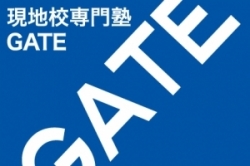
-
GATE는 이런 현지 학교 전문 학원입니다】 ・ 수강료는 티켓제 ( 선불제 ) 수강한 만큼의 비용입니다 ・ 자습시간이 있어 강사와 질문할 수 있습니다 ・ 현지 학교의 ・ 현지 학교 과목 및 SAT / ACT / TOEFL 등의 시험에 대해 다양한 레벨의 지도가 가능합니다 ・ 의욕이 없는 아이에게 공부에 대한 흥미를 유발할 수 있습니다. ・ 성적...
+1 (949) 636-9092GATE Tutoring Service
-
- 일본을 포함한 전 세계에 200개 이상의 매장을 운영하고 있는 'AUBE...

-
일본을 포함한 전 세계에 200개 이상의 매장을 운영하고 있는 AUBE Hair가 Los Angeles에 매장을 OPEN ★ 수준 높은 서비스와 기술을 제공합니다. 고객에게 딱 맞는 헤어스타일을 제안해 드립니다. 저희 살롱에서는 컬러와 파마에 사용하는 약품은 모두 일본산을 고집하고 있습니다. 차분한 분위기 속에서 힐링의 시간을 보내시기 바랍니다.
+1 (424) 268-8510AUBE Hair Los Angeles
-
- 토란스의 회계 사무소. 일본계 법인 회계 ・ 감사 ・ 세무 서비스 전문가...

-
일본계 기업을 중심으로 다년간의 글로벌 경험을 가진 160명 이상의 전문가들이 회계 ・ 세무 및 각종 컨설팅 서비스를 제공하고 있습니다. 미국 8개 지점 ・ 일본에 주재원 사무소를 운영하고 있습니다. 귀사의 회계 ・ 세무 ・ 감사에 관한 일이라면 언제든지 문의해 주십시오. 감사 및 회계 서비스 ・ 재무제표 감사, 검토, 컨설팅 ・ 내부통제, J-S...
+1 (310) 217-9900EOS Accountants LLP - Los Angeles Office
-
- 미국 회계법인입니다. 법인, 개인을 불문하고 세금보고, 미국 회사 설립 ...

-
한-미간 세무지원 ! 신속한 수속과 사후관리 ! 일본어 ・ 영어 모두 대응하고 있습니다.
+1 (877) 827-1040Todd's Accounting Services / Mayumi Ozaki (尾崎会計事務所)
-
- 일본어 가이드 투어로 가이드북에 실리지 않은 에피소드를 들으며 감동적인 ...

-
1945년 9월 2일 도쿄만에 정박 중인 전함 미주리호에서 항복문서 조인식을 가짐으로써 제2차 세계대전이 공식적으로 종결되었다. 현재 전함 미주리는 1941년 12월 7일 진주만 공격으로 침몰한 전함 애리조나와 함께 2차 세계대전의 시작과 끝을 상징하는 형태로 마주보고 진주만에 정박해 있다. 전함 미주리호는 세계에서 가장 마지막까지 현역으로 활약한 미국 전...
(808) 455-1600Battleship Missouri Memorial
-
- アニメを愉しみ、夢を与え、未来につながる杉並アニメーションミュージアム

-
杉並アニメーションミュージアムは、世代を超えて、日本のアニメーション全体を体系づけて学び、体験し、理解しながら楽しんでいただく、日本ではじめての施設です。「日本のアニメの歴史」から「これからのアニメ」までアニメ全般を総合的に紹介しています。また、アニメの原理が体験できるギミックやアフレコ体験などアニメ制作の過程を直接体験していただく参加型展示や常に新しいアニメ情報を盛り込んだ「企画展」などさまざま...
+81-3-3396-1510杉並アニメーションミュージアム
-
- 부동산 매매를 생각하고 계십니까 ? 우리는 수수료가 더 저렴하고 경험과 ...

-
전문적인 부동산 서비스를 제공하는 사쿠라 부동산 샌프란시스코 ・ 이스트 베이에서 20년 이상의 경력을 자랑하는 베테랑 MBA/부동산 브로커 Yasumi Davis ( Yasumi Maruyama )가 이끄는 사쿠라 부동산은 일본인 에이전트가 세심하게 대응하는 신뢰와 실적이 있는 부동산 전문 회사입니다. 일반 주택 매매뿐만 아니라 유언검인 ( Prob...
+1 (925) 381-3201Sakura Realty / Yasumi Davis, MBA/CEO

LTSS webinar, October 23 – Promoting Access to Voting Among Elders and People with Disabilities
American Indian/Alaska Native Long-Term Services and Supports
SOLUTIONS
Technical assistance for culturally competent care
October 2024
CMS LTSS banner
LTSS Technical Assistance Center Visit the online LTSS TA Center [ https://links-2.govdelivery.com/CL0/https:%2F%2Fwww.cms.gov%2FOutreach-and-Education%2FAmerican-Indian-Alaska-Native%2FAIAN%2FLongTermCare.html/1/010101921efd3c0d-29b2a01d-ed14-4228-bb19-21085627ce7d-000000/SgBIsWAf1DEkUkGhzf1_s6QHUDduEyOK8nJIfZOulJs=371 ] for videos, best practices, toolkits, a resource library, and a step-by-step planning roadmap.
Get email updates [ https://public.govdelivery.com/accounts/USCMS/subscriber/new ] Join us on LinkedIn [ https://www.linkedin.com/groups/8271926/ ] Follow us on X [ https://x.com/cmsgov ]
*Health and voting access*
With the November general election fast approaching, Native people have the potential to rock the vote in six battleground states—Arizona, Michigan, Minnesota, Nevada, North Carolina, and Wisconsin.
Launched by the National Congress of American Indians, the non-partisan Get Out the Native Vote [ https://nativevote.org/ ] campaign encourages American Indians and Alaska Natives across the country to vote and explains why every election matters.
The importance of the Native vote is underscored further in Empowering Urban Indian Organizations at the Intersection of Health and Voting Access [ https://www.buzzsprout.com/1954774?client_source=large_player&iframe=true&referrer=https://www.buzzsprout.com/1954774.js?container_id=buzzsprout-large-player&player=large ], a podcast episode that explores how increased voter engagement may impact social determinants of health.
Absentee ballots, which can be submitted by mail or online, are a great option for American Indian and Alaska Native people who might have difficulty voting in person due to limited mobility or inadequate access to transportation.
Vote.org [ https://www.vote.org/absentee-ballot-deadlines/ ] lists absentee ballot deadlines by state. Note that ballots must be received by the deadline specified for one’s state of residence.
*Transportation services for limited mobility *
Transportation can be a major stressor in Indian Country, especially for tribal elders and people with disabilities. How can tribes get involved?
Medicaid transportation reimbursements are available in every state for home- and community-based services (HCBS).
With this option, tribes may be reimbursed for providing participating tribal members with rides for non-medical errands, depending on what their state allows.
To learn more about HCBS for elders and people with disabilities:
* Watch a 35-second video [ https://www.youtube.com/watch?v=_n4sZTfKULQ ] about the topic
* Visit the LTSS TA Center [ https://www.cms.gov/training-education/partner-outreach-resources/american-indian-alaska-native/ltss-ta-center/information/ltss-models/tribal-involvement ] for information about how tribes can get involved in planning and developing HCBS programs
A doodle of a bus from the 35-second video titled Home-Based Care for Elders and Tribal Members with Disabilities
*Title VI Spending Quick Guide *
Older Americans Act Title VI logo with a scenic backdrop of a mountain-ringed lake
Title VI programs provide nutrition, supportive services, and caregiver support services for American Indian and Alaska Native elders. To help tribes support such programs, the Administration for Community Living offers a Title VI Spending Quick Guide [ https://acl.gov/sites/default/files/nutrition/TitleVI_SpendingQuickGuide_508.pdf ] (PDF, 571 KB, 17 pp) for 2024. The guide identifies potential funding options to cover supplies and equipment costs for the following Title VI services:
* Congregate meals
* Home-delivered and grab-and-go meals
* Gardening
* Caregiver support
* Elder health and wellness
* Transportation
* Offices and facilities
* Employees and training
*Employment challenges among people with disabilities *
National Disability Employment Awareness Month is observed each October. This year, the U.S. Department of Labor Office of Disability Employment Policy is sharing information on how employers can promote access to good jobs for all within their workforce [ https://www.dol.gov/agencies/odep/initiatives/ndeam#:~:text=Observed%20annually%20in%20October%2C%20National,inclusive%20employment%20policies%20and%20practices. ].
*Workforce challenges for Native people with disabilities *
The National Institute for Health Care Management (NIHCM) Foundation highlights disability, employment, and income information in American Indian and Alaska Native (AI/AN) communities in the infographic, “Supporting the Health Care Needs of People with Disabilities.” According to the infographic, 38.7% of AI/AN people live with a disability, which doubles their risk of also experiencing poverty and unemployment.
See the full infographic [ https://nihcm.org/publications/supporting-the-health-care-needs-of-people-with-disabilities ] for at-a-glance strategies to support the health and wellbeing of people with disabilities.
Sections from the infographic, 'Supporting the Health Care Needs of People with Disabilities':
Overview of Disability: A disability refers to any physical or mental impairment that results in substantial activity limitations.
Disability Prevalence: 29% of US adults experience disability, 38.7% of American Indians and Alaska Natives experience a disability
'Income and Employment by Disability Status:'
Grouped bar graph
People with Disabilities by Income Group
<$15,000 - 16.5%
$15,000 to <$25,000 - 19.7%
$25,000 to <$35,000 - 19.5%
$35,000 to <$50,000 - 16.2%
$50,000+ - 28.2%
People Without an Identified Disability by Income Group
<$15,000 - 6.0%
$15,000 to <$25,000 - 11.1%
$25,000 to <$35,000 - 16.3%
$35,000 to <$50,000 - 18.7%
$50,000+ - 47.8%
People with disabilities are 2x as likely to live in poverty. Disability is both a cause and a consequence of poverty.
Employment and Underemployment Challenges for People with Disabilities
Unemployment
The unemployment rate for people with disabilities is about 2x that of those without an identified disability
7.2% - People with disabilities
3.5% - People without an identified disability
Part-Time Employment
People with disabilities are nearly 2x as likely to be employed part-time.
Workers with disabilities are also more likely to be employed in service jobs such as food services and health care support, which more commonly offer part-time positions.
Underemployment, which includes working part-time involuntarily, can impact various aspects of health and well-being.
Part of the NIHCM Foundation’s infographic, “Supporting the Health Care Needs of People with Disabilities,” which features income and employment information
Disabilities toolkit for Native communities
For AI/AN-specific information about vocational rehabilitation and employment, check out Chapter 6 of the National Indian Council on Aging’s toolkit, Understanding Disabilities in American Indian & Alaska Native Communities [ https://www.nicoa.org/wp-content/uploads/2023/03/NCD_Understanding_Disabilities_in_American_Indian_508.pdf ] (PDF, 4.23 MB, 241 pp).
The chapter highlights important legal protections, resources with contact information, and a case study showcasing the success of Rolling Rez Arts, an initiative to advance the economic and social interests of artists on the Pine Ridge Indian Reservation.
Cover from the NICOA toolkit, “Understanding Disabilities in American Indian and Alaska Native Communities,” shows graphic icons for a blind person walking with a cane, a person in a wheelchair, hands doing sign language, and a person with developmental disabilities
LinkedIn Tribal Affairs Group
Join the conversation on LinkedIn
Want to learn more about or discuss LTSS in Indian Country? Looking to connect with others working in the same field?
Join the Tribal Affairs Group [ https://www.linkedin.com/groups/8271926/ ] on LinkedIn.
Upcoming webinar
*Promoting Access to Voting Among Elders and People with Disabilities *
*Wednesday, October 23 *
This webinar will highlight efforts to develop and implement a voter registration pilot program at different Indian Health Service (IHS) facilities in fulfillment of commitments related to Executive Order 14019, on promoting access to voting.
*Objectives:*
* Explain how the program started
* Describe what was involved in selecting IHS facilities to participate
* Discuss how the program helps make voting more accessible to elders and people with disabilities
* Provide an overview of plans to ensure program growth and sustainability
Register [ https://kauffmaninc.zoom.us/webinar/register/WN_bQGqtIF5Sq2X-Unc7WwbLA#/registration ]
*Please note your
location's call-in time:*
8 a.m. Hawaii
10 a.m. Alaska
11 a.m. Pacific
12 p.m. Mountain
1 p.m. Central
2 p.m. Eastern
Have questions for our presenter? Let us know before the webinar by emailing ltssinfo@kauffmaninc.com.
_Register now [ https://kauffmaninc.zoom.us/webinar/register/WN_bQGqtIF5Sq2X-Unc7WwbLA#/registration ]_.
*Presenter*
Joshuah Marshall
*Joshuah Marshall*
Senior Advisor to the Director
Indian Health Service
Caregiver's corner
*Native Elder Caregiver Curriculum modules*
Developed through a collaboration between the National Resource Center on Native American Aging and Cankdeska Cikana Community College, and informed by elders and community members of the Spirit Lake Nation, the Native Elder Caregiver Curriculum [ https://www.nrcnaa.org/native-elder-caregiver-curriculum ] includes a:
* Native Elder Family Caregiver Module [ https://www.nrcnaa.org/native-elder-caregiver-curriculum/module/index.html ], which explains how different parts of the body change with aging and offers strategies to adapt caregiving to these changes
* Module on Normal Age-Related & Expected Changes in Aging [ https://www.nrcnaa.org/native-elder-caregiver-curriculum/normal-aging/index.html ], which describes how different systems within the body change with aging and how those changes may increase elders’ risk for falls or affect their health in other ways
Native Elder Caregiver Curriculum (NECC) banner
Funding opportunities
*Grants for home modification programs*
*Applications due: November 19*
Learn more about the home modification funding opportunity [ https://www.grants.gov/search-results-detail/356487 ]
The Department of Housing and Urban Development (HUD) is offering grants to support home modification repair and renovation programs that enable low-income elders to age in place. The goal of such programs is to improve safety, increase accessibility, and improve elders’ functional abilities.
HUD expects to award 15 organizations up to $2 million each. Indian housing authorities are eligible to apply.
Upcoming events
*Dementia Friends information session *
*October 22 at 2 p.m. Eastern*
Register for the Dementia Friends information session [ https://us06web.zoom.us/meeting/register/tZUkfuGgrj4vH93KTialtOJ5vBxJDopyGT64#/registration ]
A Dementia Friends information session for American Indians and Alaska Natives will be held as part of an ongoing effort to create more inclusive environments for people with dementia.
The session will explain what living with dementia is like. Attendees will be asked to take practical steps to help someone with dementia in their community.
Send us your news
Do you have news to share about LTSS in Indian Country? Send it to ltssinfo@kauffmaninc.com for possible inclusion in an upcoming newsletter. Contact us with other comments or feedback, too.
About the newsletter
American Indian/Alaska Native Long-Term Services and Supports Solutions is published monthly by the CMS Division of Tribal Affairs to share information, funding opportunities, and resources with LTSS planners, tribal leaders, and supporters.
Centers for Medicare & Medicaid Services [ https://www.cms.gov/ ] Indian Health Service [ https://www.ihs.gov/ ] Administration for Community Living [ https://acl.gov/ ] [ https://links-2.govdelivery.com/CL0/http:%2F%2Fihs.gov/2/010101921efd3c0d-29b2a01d-ed14-4228-bb19-21085627ce7d-000000/_anm4iq19SPlWtK0NsYYWXrOyrK2M7ng6F5Q2rP1R7A=371 ]
________________________________________________________________________
You're getting this message because you subscribed to get email updates from the Centers for Medicare & Medicaid Services (CMS) [ http://www.cms.gov/ ].
Update your subscriptions, modify your password or email address, or stop subscriptions at any time on your Subscriber Preferences Page [ https://public.govdelivery.com/accounts/USCMS/subscriber/edit?preferences=true#tab1 ]. You will need to use your email address to log in. If you have questions or problems with the subscription service, please contact subscriberhelp.govdelivery.com [ https://subscriberhelp.govdelivery.com/ ].
This service is provided to you at no charge by Centers for Medicare & Medicaid Services (CMS) [ http://www.cms.gov ].
________________________________________________________________________
This email was sent to mshinji3056@gmail.com using GovDelivery Communications Cloud 7500 Security Boulevard · Baltimore MD 21244
body .abe-column-block { min-height: 5px; } table.gd_combo_table img {margin-left:10px; margin-right:10px;} table.gd_combo_table div.govd_image_display img, table.gd_combo_table td.gd_combo_image_cell img {margin-left:0px; margin-right:0px;} table.govd_hr {min-width: 100%;}